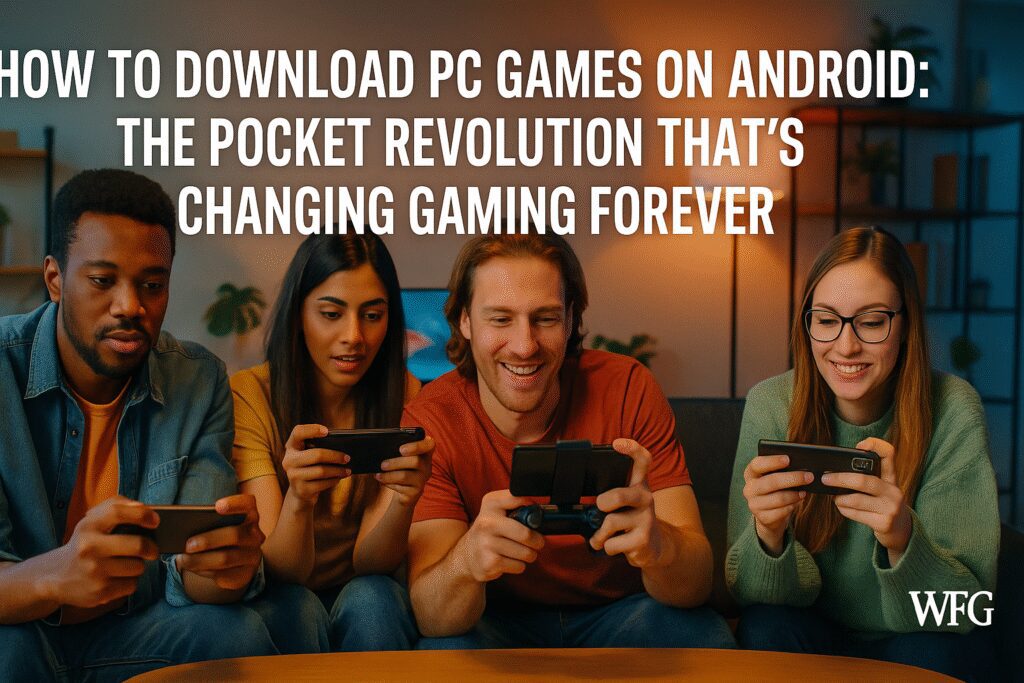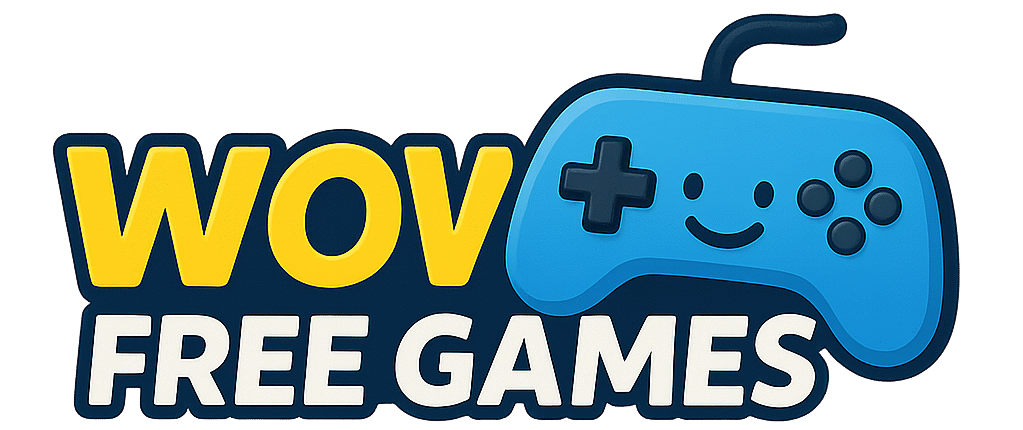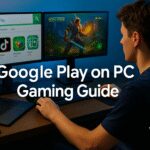Picture this: Jake, a college student from Austin, was stuck in a three-hour layover at Denver International Airport. His laptop was dead, his power bank was running low, but he had hours to kill. Then he remembered something a friend mentioned – his Android phone could actually run PC games. Real PC games. Not mobile ports or simplified versions, but the actual desktop experiences he loved.
Within twenty minutes, Jake was playing Stardew Valley, Age of Empires II, and even some indie Steam titles directly on his smartphone. The same games that normally required his gaming laptop were running smoothly on a device that fits in his pocket.
What Jake discovered that day represents a seismic shift in gaming accessibility. The boundary between PC and mobile gaming isn’t just blurring – it’s completely disappearing. And if you’ve ever wished you could access your PC game library anywhere, or wondered why powerful smartphones can’t run the games you actually want to play, this revolution might just transform your entire relationship with gaming.
Here’s the reality most gamers don’t realize: modern smartphones pack more processing power than many gaming laptops from just five years ago. Yet most people are stuck playing simplified mobile games when they could be experiencing full PC gaming experiences in their pocket.

The Hidden Revolution in Your Pocket
Consider the raw numbers for a moment. The latest Android flagship phones sport processors that match or exceed many mid-range gaming laptops. They have 8GB to 16GB of RAM, advanced GPU architectures, and storage speeds that rival desktop SSDs.
Yet 99% of mobile gamers never unlock this potential.
The gaming industry has conditioned us to accept that mobile means simplified, that portable means compromised, that smartphone gaming equals mindless time-wasters. But a growing community of tech-savvy gamers has been quietly breaking these barriers, turning Android devices into legitimate PC gaming platforms.
The transformation isn’t just about technical capability. It’s about freedom from the desktop. Imagine accessing your entire Steam library during your commute, playing strategy games with touch controls that actually make sense, or discovering indie gems designed for portable play but never making it to traditional mobile stores.
Must read: NFT Trading Platform: Complete Beginner’s Guide to Getting Started Safely
This isn’t future technology. It’s happening right now, and the methods are surprisingly accessible.
The Three Pathways to PC Gaming on Android
Method One: Cloud Gaming Revolution
The most immediate path to PC gaming on Android bypasses local hardware limitations entirely through cloud gaming services.
Xbox Cloud Gaming leads this charge with over 400 PC and console games streamable to any Android device. The setup process is remarkably simple – install the Xbox Game Pass app, ensure you have a stable internet connection, and you’re instantly accessing games that would normally require thousand-dollar gaming PCs.
But here’s what separates the casual users from the power players: optimization matters more than raw internet speed. A stable 10 Mbps connection with low latency often outperforms an unstable 50 Mbps connection. Connect to 5GHz Wi-Fi when possible, close background apps to free up bandwidth, and consider a Bluetooth controller for complex games.
NVIDIA GeForce Now takes cloud gaming further by connecting to your existing Steam, Epic Games, and other PC gaming libraries. Instead of accessing a curated selection, you’re playing your actual purchased games. The experience often exceeds local hardware capabilities since you’re leveraging NVIDIA’s server-grade graphics cards.
The earning potential hidden in cloud gaming: Many PC games offer better monetization opportunities than mobile equivalents. Steam trading, in-game marketplaces, and competitive gaming rewards become accessible anywhere you have internet connectivity.
Method Two: Native Android PC Gaming
The second revolution involves PC games specifically ported or developed for Android hardware. This isn’t about emulation or streaming – these are full PC experiences optimized for mobile processors.
Steam Link transforms your Android device into a wireless display for your home gaming PC. While this requires a PC running at home, the gaming experience rivals local play when properly configured. Games that support controller input translate perfectly, while strategy games often work better with touch interfaces than traditional mouse and keyboard.
Moonlight takes PC streaming further with open-source flexibility and often superior performance to proprietary solutions. The setup requires more technical knowledge, but the result is latency-free gaming that makes you forget you’re not sitting at your gaming desk.
Parsec enables PC gaming anywhere by creating secure connections to your gaming computer from any location. Unlike solutions that require the same network, Parsec works from coffee shops, offices, or anywhere with decent internet. The professional-grade streaming often exceeds commercial gaming services.
Method Three: Emulation and Compatibility Layers
The most technically advanced path involves running actual PC game files on Android hardware through emulation and compatibility layers.
Winlator represents the cutting edge of this approach, creating a Windows-like environment within Android. While still experimental, it successfully runs many older PC games natively on Android hardware. The performance varies dramatically based on game age and optimization, but the potential is staggering.
Box86/Box64 compatibility layers allow ARM-based Android devices to run x86 PC software, including games. This approach requires significant technical knowledge and works primarily with older or less demanding titles, but represents true local PC gaming on mobile hardware.
RetroArch brings decades of PC gaming to Android through comprehensive emulation. While focused on retro systems, many classic PC games that defined genres run flawlessly. The unified interface makes managing multiple game libraries surprisingly elegant.
The Unspoken Challenges and Smart Solutions
Every guide paints this transformation as seamless, but the reality includes genuine challenges that separate successful mobile PC gamers from frustrated abandoners.
Input complexity represents the biggest hurdle. PC games designed for keyboard and mouse don’t always translate elegantly to touch controls. However, the gaming community has developed sophisticated solutions. Virtual controller overlays, gesture-based shortcuts, and hybrid control schemes often create experiences superior to traditional mobile gaming.
Battery life limitations seem obvious but are often overstated. Modern Android devices handle demanding games for 3-6 hours depending on optimization. More importantly, gaming sessions naturally break into shorter segments when playing portably. The fear of battery drain often exceeds the practical impact.
Storage requirements vary dramatically. Cloud gaming requires minimal local storage while native installations can demand 50GB+ per game. Strategic game selection and cloud storage integration solve most space constraints. Many successful mobile PC gamers maintain smaller libraries of frequently played titles.
Network stability matters more than speed for cloud gaming. A consistent 15 Mbps connection outperforms an unstable 100 Mbps connection. Understanding your network patterns – when bandwidth is most stable, which locations provide consistent connectivity – determines success more than raw internet speed.
The Business of Portable PC Gaming
Behind the technical achievement lies a growing economic opportunity. Professional gamers, content creators, and even casual earners are monetizing mobile PC gaming in ways that traditional mobile gaming never enabled.
Streamers broadcast PC gaming sessions from unexpected locations, creating unique content angles. Competitive gamers practice during commutes or travel, maintaining skill levels that would otherwise decline. Trading and marketplace activities continue without interruption, maximizing earning potential from gaming investments.
The productivity multiplication effect extends beyond gaming. Game development, 3D modeling, video editing, and other creative work traditionally chained to desktop computers becomes portable. The same techniques enabling PC gaming on Android unlock professional software capabilities anywhere.
Consider the broader implications. Remote workers can access full desktop environments through similar technology. Students can run specialized software without expensive laptops. Creative professionals can maintain workflows regardless of location.
Advanced Optimization Techniques
Network optimization often matters more than hardware upgrades. Enable developer options on Android and adjust network settings for gaming priority. Use gaming-focused DNS servers like Cloudflare’s 1.1.1.1 for reduced latency. Consider gaming VPNs that optimize routing for cloud gaming services.
Controller selection dramatically impacts experience. Bluetooth controllers introduce slight latency that affects competitive gaming. USB-C controllers provide zero-latency input but reduce portability. Telescoping controllers balance performance and convenience for most users.
Display optimization transforms visual experience. Adjust screen refresh rates to match game frame rates for smoother gameplay. Enable high-performance mode during gaming sessions. Reduce background app refresh to free system resources.
Thermal management prevents performance throttling. Remove phone cases during extended gaming sessions. Use external cooling accessories for marathon gaming. Monitor device temperature and adjust settings before thermal throttling occurs.
Frequently Asked Questions
Can Android phones really run demanding PC games smoothly? Modern flagship Android devices can handle many PC games through cloud gaming services with minimal latency. For native gaming, performance depends on the specific game and device combination. Older PC games and many indie titles run surprisingly well, while AAA titles typically require cloud gaming solutions.
Do I need a high-end Android phone to download PC games? For cloud gaming, even mid-range Android devices work well with stable internet connections. Native PC gaming benefits from more powerful hardware, but many games run on devices from the last 3-4 years. The bottleneck is often network stability rather than local processing power.
Will downloading PC games on Android drain my data plan? Cloud gaming typically uses 3-10 GB per hour depending on quality settings and game complexity. Most services allow quality adjustment to manage data usage. Downloading games for offline play uses data once but enables unlimited offline gaming afterward.
Are PC games on Android legal and safe? Using official services like Xbox Cloud Gaming, GeForce Now, or Steam Link is completely legal and safe. These services provide access to legitimately purchased games. Avoid unofficial game downloads or modified APK files that may contain malware or violate copyright.
Can I use keyboard and mouse with PC games on Android? Many Android devices support USB and Bluetooth keyboards and mice, especially for cloud gaming services. The compatibility varies by game and service, with strategy and simulation games typically offering full keyboard/mouse support while action games may require controllers.
The Future of Gaming is in Your Pocket
The convergence of mobile hardware capability, cloud infrastructure, and developer innovation has created something unprecedented: true gaming freedom. Not the simplified mobile gaming that’s dominated app stores, but access to the entire universe of PC gaming experiences anywhere you can carry a smartphone.
This transformation extends beyond gaming into productivity, creativity, and professional applications. The same technology enabling PC gaming on Android unlocks access to professional software, creative tools, and specialized applications previously chained to desktop computers.
Early adopters are already living in this future – accessing Steam libraries during commutes, maintaining competitive gaming skills while traveling, creating content from unexpected locations, and earning money through gaming activities that continue uninterrupted regardless of location.
The question isn’t whether this technology will become mainstream. The infrastructure exists, the performance meets expectations, and the user base is growing exponentially. The question is whether you’ll be among the early adopters gaining advantages, or among the later majority discovering what’s been possible all along.
Your smartphone contains the capability to access decades of PC gaming innovation. The setup is more accessible than ever, the performance exceeds expectations, and the freedom transforms how gaming fits into your life.
Must read: Best Crypto Currency App for Low-Fee Trading: Complete Cost Comparison Guide 2025
What PC game will you play first on your Android device? Whether it’s revisiting a classic strategy game with touch controls that finally make sense, accessing your Steam library during your next trip, or discovering indie gems designed for portable play, the entire PC gaming universe is waiting in your pocket.
Share your thoughts below about which PC games you’re most excited to try on Android, or tell us about your own mobile PC gaming discoveries./isolated-segment.html




Pingback: outsourcing game studios